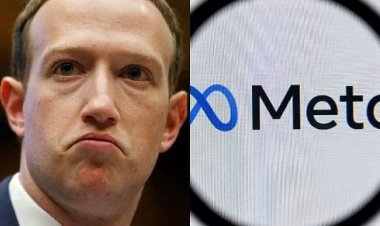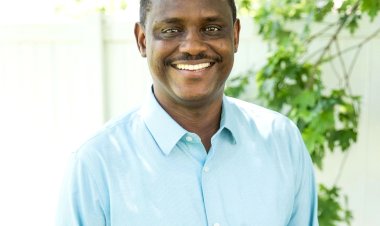Norristown-area Muslims celebrate Eid al-Fitr at Elmwood Park
A growing Muslim community in Norristown welcomed the end of Ramadan and celebration of Eid al-Fitr with a picnic.

Eid al-Fitr celebrations mark the end of the holy month of Ramadan for Muslims.
More than 100 members of the Norristown Islamic Society gathered at Elmwood Park in Norristown on Wednesday to celebrate with a picnic. Earlier in the morning, they attended prayers at the Norristown Islamic Society mosque.
During Ramadan, many Muslims fast from sunrise to sundown. Eid al-Fitr is the joyful holiday that marks the end of Ramadan, and continues through the following three days.K
Eids played catch with a football while some twirled in their finest clothes, as community members shared food and conversations at tables set up in the park.
For Akbar Hossain, who grew up in Norristown and who now serves as Gov. Shapiro’s secretary of policy and planning, the celebration was a welcome sight.
Norristown has always been an “incredibly diverse community,” Hossain said, but these kinds of public gatherings for the Muslim community weren’t as common when he was growing up.
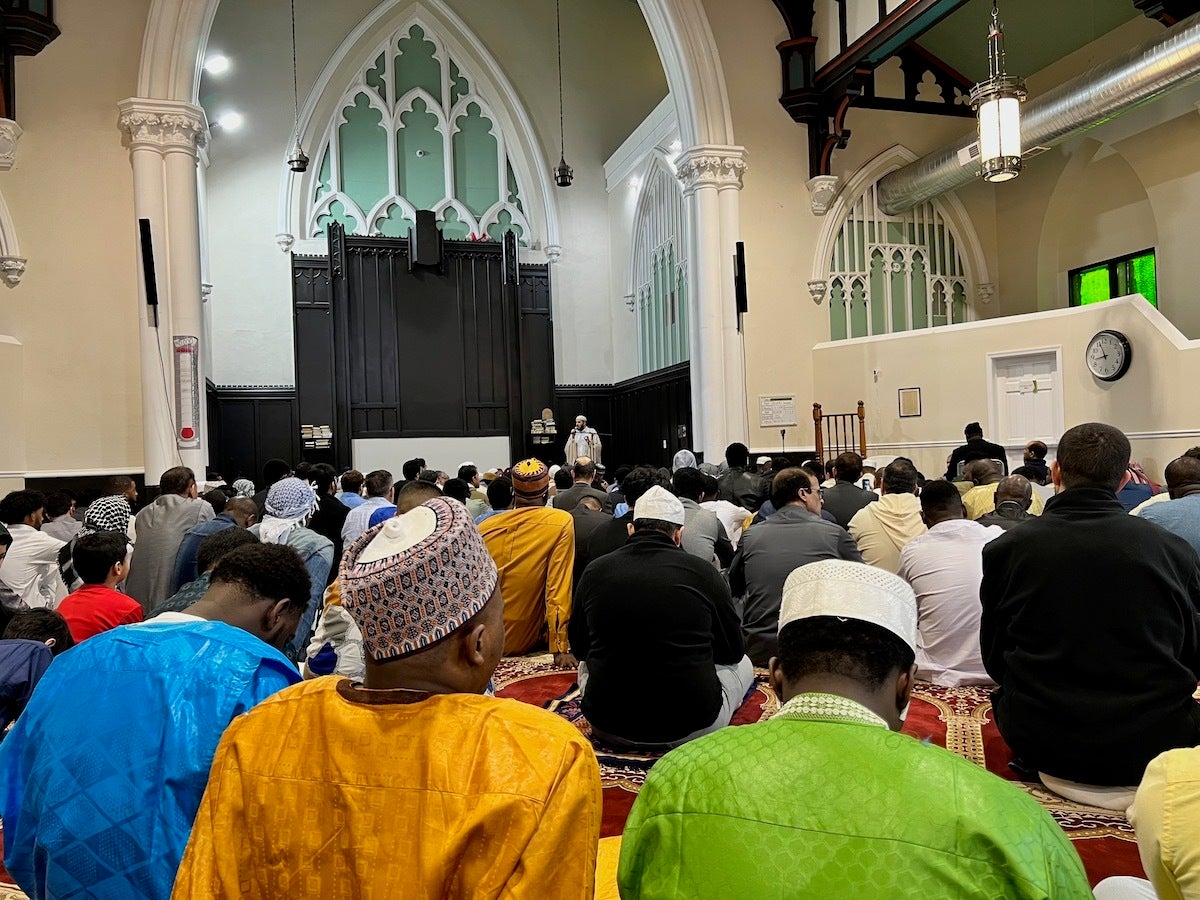
“When I first moved here, I couldn’t imagine so many Muslims getting together in an open space. I moved here during 9/11,” Hossain said. “And to think about how far the community has come, I’m proud of the community. And also knowing that this is not just Muslims coming together, right, you’ve got members of all different faiths, you know, [which] helped build what you’re seeing today.”
Community members noted that the recent trend of area school districts closing for Eid al-Fitr has been a huge benefit to Muslim families and it has allowed them to celebrate the holiday together.
“I like the acceptance,” Iman Ahmad said. “I like the fact that they’ve embraced the Muslims in America as part of the fiber and the fabric of American society. It’s more inclusion. It’s not the exclusion. It’s not the other or them or those people. And that’s what I like about it.”
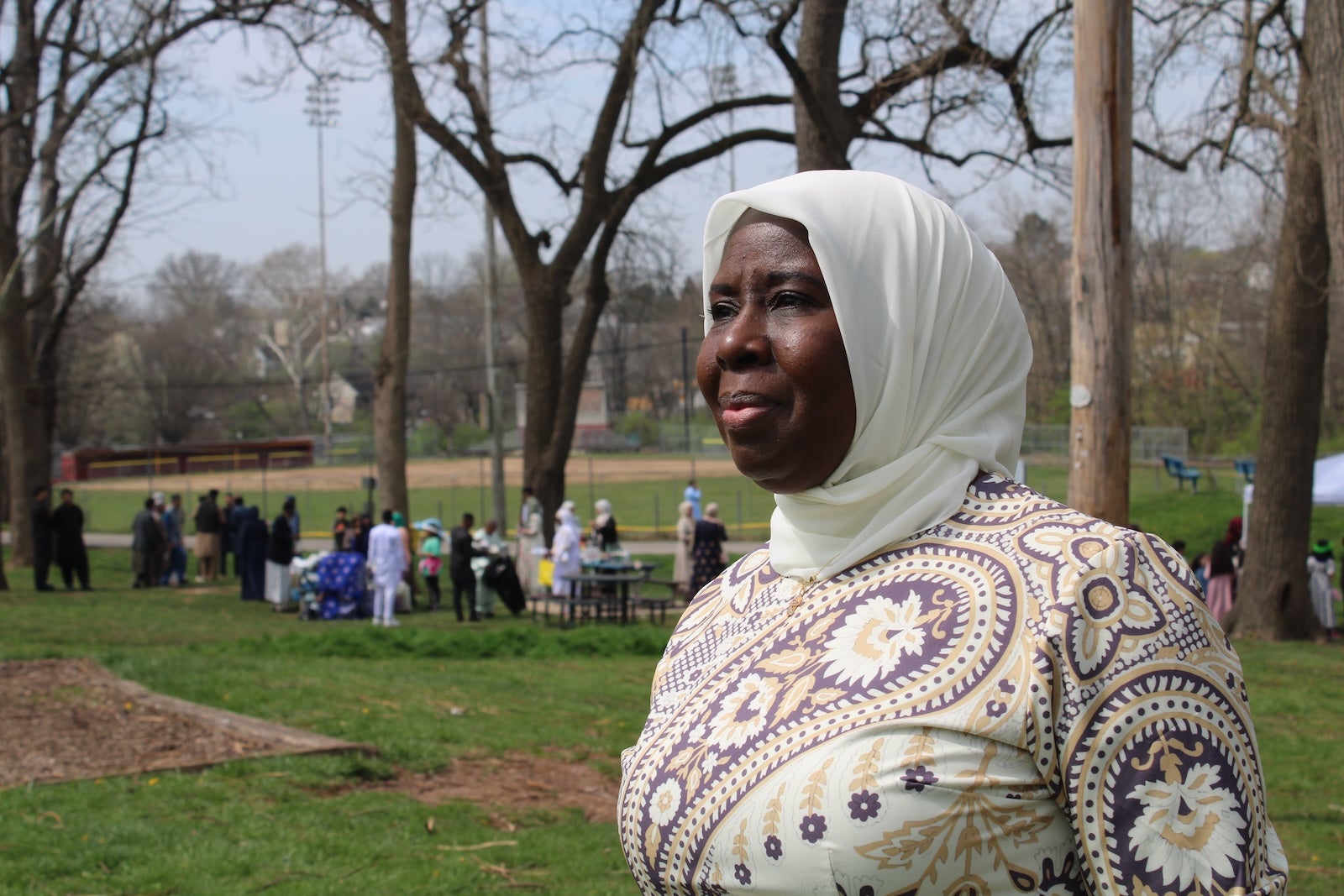
Ammara Chaudhry said that this type of inclusion is especially important for Muslim children.
“When a big event like Ramadan comes, it’s not celebrated in the media, it’s not celebrated commercially. So our children do feel that, ‘No, we are not represented,’” she said.
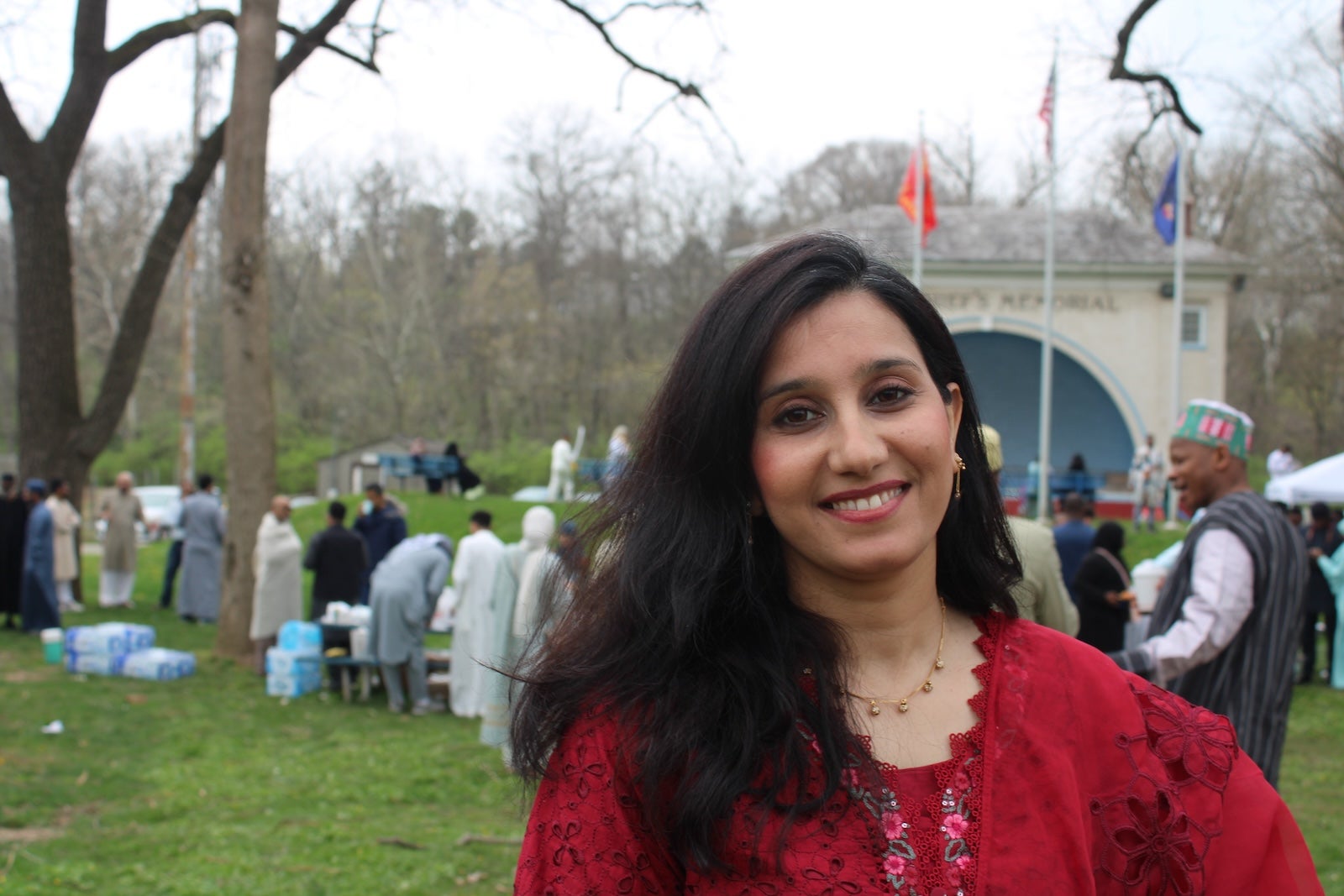
But with schools closing and families being able to have celebrations in public spaces, that lack of representation changes, Chaudhry said.
“This is beautiful for us. I mean, this is absolutely wonderful, the fact that we can just come out in the open and just celebrate and … let people see that. You know, yes, we are peaceful, yes we celebrate. Yes, we are normal,” she said.
Parvez Bahadur, treasurer of the Norristown Islamic Society, said the mosque’s congregation has grown in the past several decades. They’ve expanded from a small building on Green Street that could accommodate 60-70 people to a converted church building on Elm Street that opened four years ago.
On Wednesday, prior to the picnic, Bahadur said more than 200 people attended prayers at the mosque.
“Every year, we attract more and more people, our community has been growing. This year, we actually ran out of space in the main prayer hall,” he said. “We had to have people in a separate room because there’s so many people who showed up for the prayer.”
Bahadur said that among the mosques in the Norristown area, Norristown Islamic Society is among the most diverse. Immigrants from Guinea, Morocco, Egypt, India, Pakistan, Algeria, Afghanistan and more attend the mosque, along with Black American Muslims and others.
Ahmad said she started attending the mosque when she relocated to Norristown from Philadelphia eight years ago. She immediately found the community to be “very welcoming.” The imam at that time didn’t speak English, and many of the immigrant “sisters” in the community would translate for her during the Friday khutbah, or sermon, she said.
“Because of the welcome I have received, I’ve stayed with the community, started contributing, teaching the Sunday school, and still work today,” Ahmad, who was chairperson for the mosque several years ago, said.
“What happens in many immigrant communities, and this is understandable, it’s been going on for centuries in this country, people from one particular nation or area tend to go gravitate towards [one another], and they establish a mosque with that oneness,” she said. “Ours, culturally, we cross all borders … It doesn’t matter from where you hail.”
Bahadur said including the wider community beyond the mosque is an important part of their Ramadan activities. This year, the mosque invited school board members from the neighboring districts of Upper Merion, Norristown Area and Colonial Penn. The officials participated in an iftar, the meal which breaks each day’s fast after sundown, so that they could learn more about Islam. Bahadur said they did the same with neighboring churches, temples and synagogues, hosting an interfaith program for each faith community to connect to one another.
Bahadur said the community is expected to grow in the coming years, and part of that growth is tied to a more diverse population in Norristown and beyond.
“We see that our communities in the suburbs have become more diverse the last two or three years,” he said.
Abdourahaman Barry, a member of Norristown Islamic Society, said that he has seen that growth firsthand. When he was living in Norristown in the early 1990s, he had to go to Philadelphia to attend a mosque.
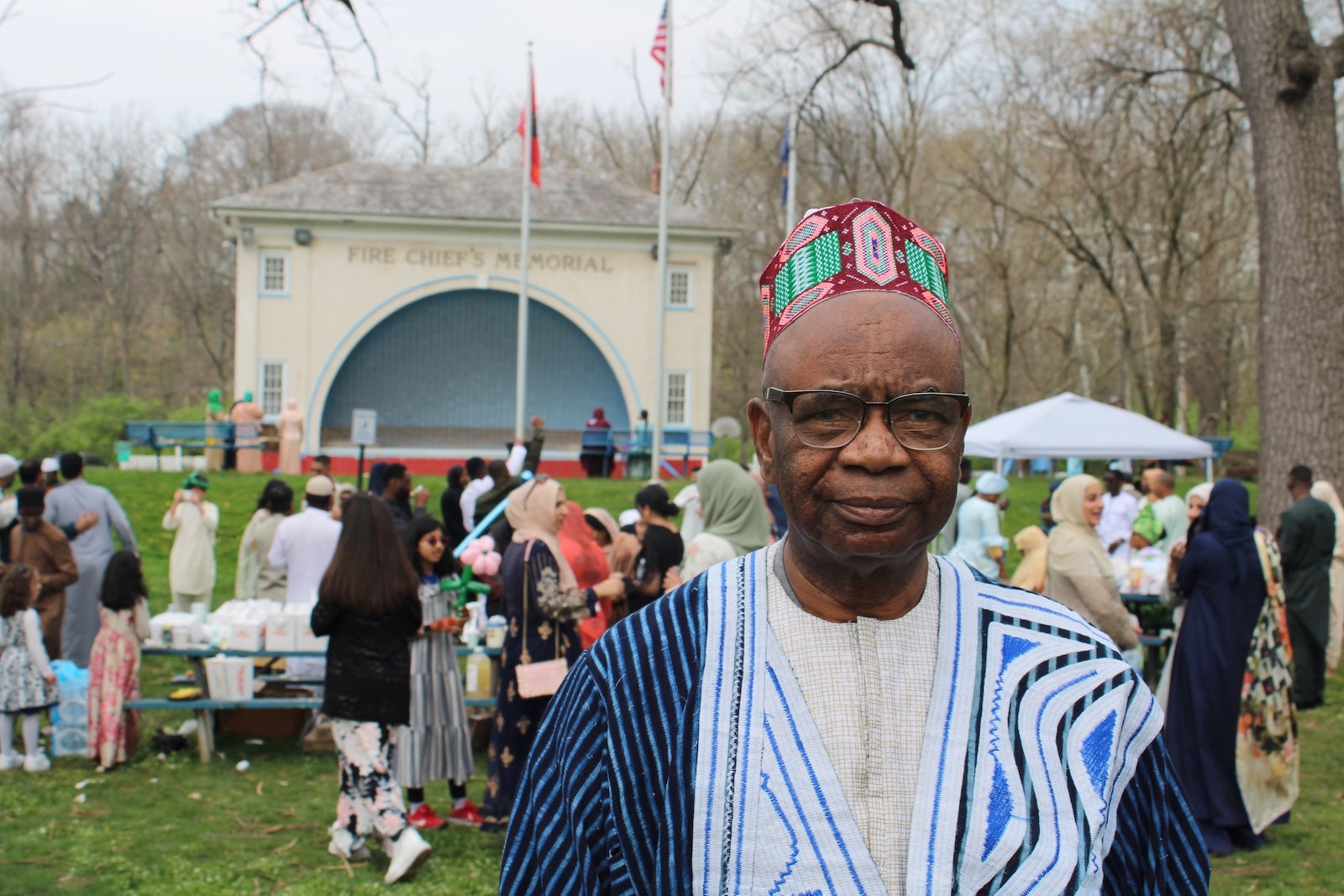
In 1996, he was part of the founding of Norristown Islamic Society, when they first held Friday congregational prayers in someone’s living room.
“Now when you drive, you want to look for a place to pray, go to Google, you will find a masjid. In 12, 15 minutes you will be able to go. That is a big change,” Barry said.
Source whyy






































